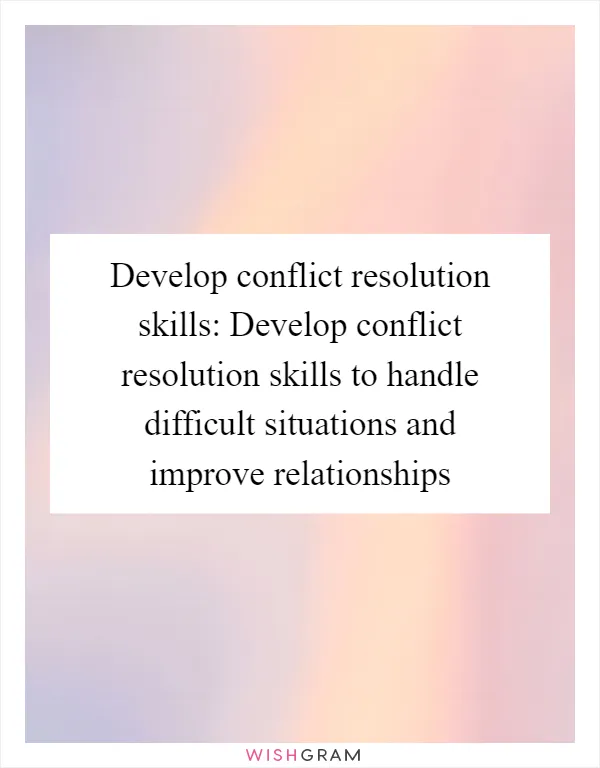Develop conflict resolution skills: Develop conflict resolution skills to handle difficult situations and improve relationships
Conflict is a natural part of life. We all encounter difficult situations that can strain our relationships with others. That's why it's important to develop conflict resolution skills. By doing so, we can effectively handle conflicts and improve our relationships with those around us.
One key aspect of conflict resolution is active listening. When conflicts arise, it's crucial to listen attentively to the other person's perspective. This means giving them your full attention, maintaining eye contact, and avoiding interruptions. By truly understanding their point of view, you can find common ground and work towards a resolution that satisfies both parties.
Another important skill is effective communication. Clearly expressing your thoughts and feelings in a non-confrontational manner can help prevent conflicts from escalating. It's essential to use "I" statements to express how you feel, rather than blaming or accusing the other person. This approach encourages open dialogue and fosters a more collaborative atmosphere.
Empathy is also a powerful tool in conflict resolution. Putting yourself in the other person's shoes allows you to better understand their emotions and motivations. By showing empathy, you can create a sense of understanding and compassion, which can help de-escalate conflicts and build stronger relationships.
Managing emotions is another crucial aspect of conflict resolution. When conflicts arise, it's natural to feel angry, frustrated, or upset. However, it's important to remain calm and composed. Take a moment to breathe deeply and collect your thoughts before responding. By managing your emotions, you can approach conflicts with a clear mind and make rational decisions.
Finding common ground is often the key to resolving conflicts. Look for shared interests or goals that both parties can agree on. By focusing on these commonalities, you can shift the conversation towards finding mutually beneficial solutions. This approach encourages collaboration and helps build stronger relationships based on compromise and understanding.
It's also important to be open to feedback and willing to apologize when necessary. Conflict resolution is not about winning or losing; it's about finding a resolution that satisfies both parties. Being open to feedback shows that you value the other person's perspective and are willing to make changes to improve the relationship. Similarly, offering a sincere apology when you've made a mistake can go a long way in resolving conflicts and rebuilding trust.
Lastly, it's important to practice patience. Conflict resolution takes time and effort. It's unlikely that conflicts will be resolved overnight. Be patient with yourself and with others as you work towards finding common ground and improving your relationships. Remember that conflict resolution is a skill
